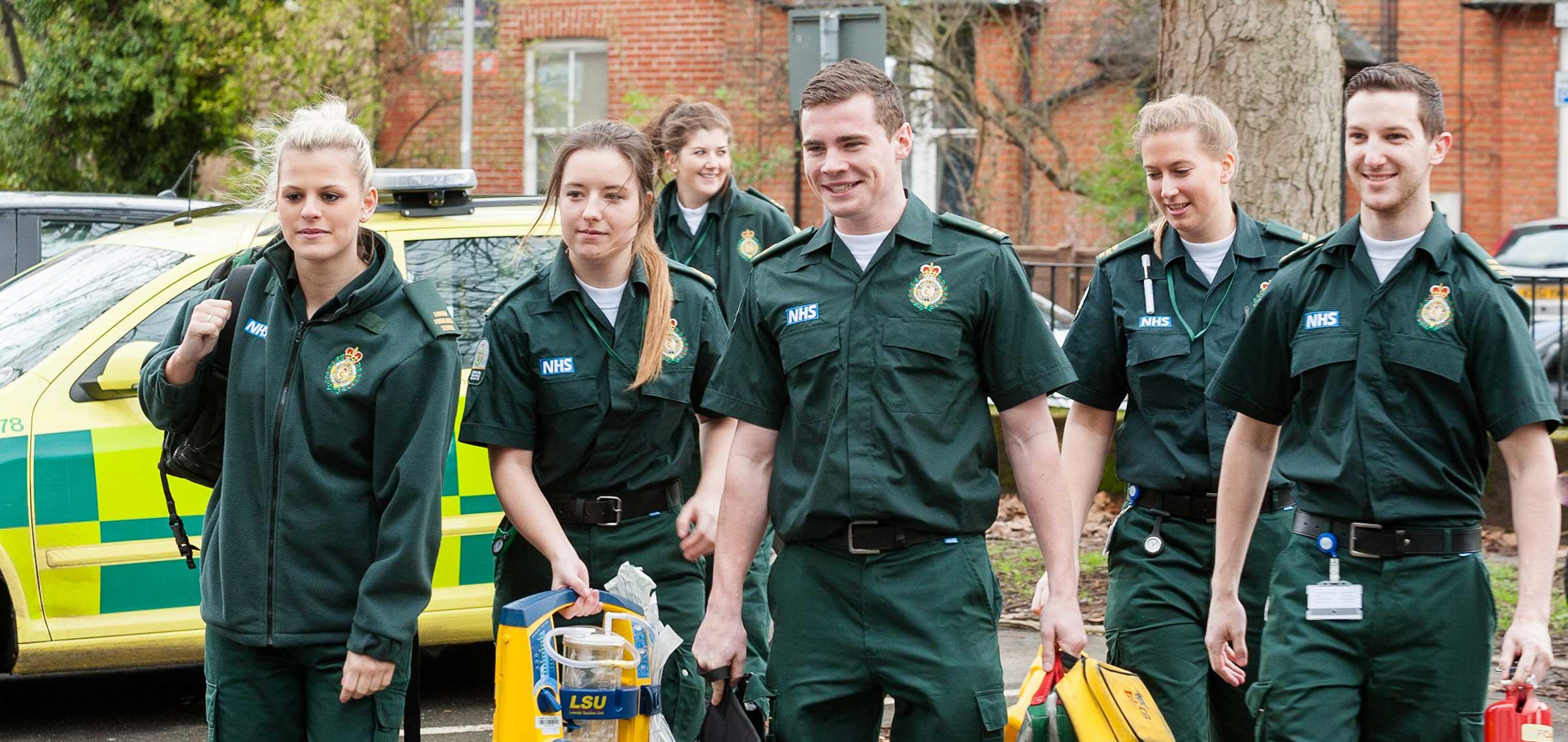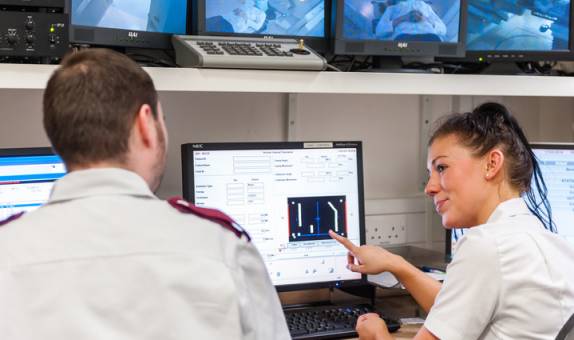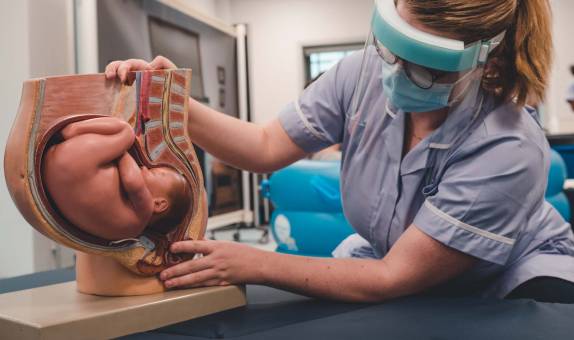- Lead co-investigators: Dr Mary Halter and Professor Vari Drennan, Kingston University and St George's, University of London
- Lead organisation: Kingston University
- Overall value of award: £776,000
- Funder: NIHR
- Dates: March 2021 – to present (30 months)
This NIHR HS&DR-funded study investigates the role non-medical practitioners play in NHS hospital emergency departments and urgent treatment centres to determine the best ‘skill-mix' – the ratio of non-medical practitioners to doctors and nurses.
The research will feature three phases and involve the analysis of national data and observing non-medical practitioners while they work, as well as detailed case studies of patient experience and outcomes in emergency departments with different skill-mixes.
Find out more about the SkillMix-Ed project >
Read a news article about the creation of the project >
- PI: Samantha Laws
- Lead organisation: Kingston University
- Overall value of award: £1,250
- Funder: College of Paramedics
- Date: 2018
This study aimed to determine the perceived knowledge, attitudes and practices of paramedics regarding pharmacology and the legal and regulatory issues of medicines management and administration. It followed a cross-sectional survey design, and involved administering an anonymous online survey to all (approximately 1000) paramedics within one UK NHS ambulance trust.
More about the project: Knowledge, attitudes and practices of UK paramedics regarding pharmacology and the legal, management and administration aspects of medicines: a cross-sectional online quantitative survey
- Chief investigator: Prof Alan Watkins
- Lead organisation: Swansea University
- PI at KU: Professor Tom Quinn
- Value of overall award: £358,400
- Funder: Medical Research Council (DHSC/UKRI COVID-19 Rapid Response Initiative)
- Dates: July 2020-present
The aim of this mixed-methods study is to evaluate models used to triage and manage emergency ambulance service care for patients with COVID-19 who call 999 in England, Wales and Scotland.
The TRIM study is a collaboration between Swansea University, Public Health Wales, the University of Stirling, Kingston University and St George's, University of London, the University of Lincoln, the Welsh Ambulance Service NHS Trust, the East of England Ambulance Service NHS Trust, and East Midlands Ambulance Service NHS Trust, UK.
It aims to generate evidence about the comparative effectiveness and safety of triage models in place; implementation concerns and policy guidance for use during any waves of loosening and tightening of the social lockdown in the current pandemic, as well as future pandemics.
The study will provide information for ambulance services, hospitals and policy makers on the effectiveness and safety of prehospital triage models.
More about the project: What TRIage model is safest and most effective for the Management of 999 callers with suspected COVID-19? A linked outcome study (TRIM)
- Chief investigator: Dr Alexis Tabah, Faculty of Medicine, University of Queensland, Australia
- Lead organisation: University of Queensland, Australia
- PI at KU: Johannes Mellinghoff
- Value of overall award: This project was realised by the authors without specific funding. Survey web platform and manpower has been provided in kind by ESICM.
- Dates: 2020
The objective of this study was to describe reported practices, availability, training, confidence in the use and effects of extended use, of PPE by healthcare workers globally when caring for patients with COVID-19 requiring ICU management.
The study adopted an ecological study design using web-based platform hosted by the European Society of Intensive Care Medicine (ESICM) to survey clinical care clinicians from Europe, Asia, North America, Oceania, South America and Africa.
More about the project:
- Lead investigator: Professor Tom Quinn
- Lead organisation: Kingston University
- Value of award at KU: £107,157
- Funder: British Heart Foundation
- Dates: 2019-2020
This study builds on previous work by this team on the use of the Pre-Hospital 12-lead (PHECG). This earlier work had found that one in three eligible patients did not receive a PHECG, but those that did have electrocardiogram had a lowered risk of short-term death.
In this new study, launched in May 2019 and using routinely collected data and qualitative methods, the investigators updated that work, and explored reasons for variations in practice. They also highlighted opportunities to improve care and outcomes. This project was a collaboration between Kingston University, Swansea University, the University of Leeds, the London Ambulance Service, the West Midlands Ambulance Service NHS Foundation Trust and the South West Ambulance Service NHS Foundation Trust.
More about the project: Do pre-hospital electrocardiograms increase heart attack survival, and are they used enough?
- Chief investigator: Professor Gavin Perkins, Warwick Clinical Trials Unit
- Lead organisation: University of Warwick
- PI at KU: Professor Tom Quinn
- Value of overall award: £2,742,873.09
- Funder: NIHR
- Dates: 2014-2019
The PARAMEDIC2 trial looked at whether adrenaline was helpful or harmful in the treatment of cardiac arrest which occurs outside of hospital, in order to help improve future treatment of people who have a cardiac arrest.
The trial was delivered by the University of Warwick in partnership with Kingston and St George's University of London and the Welsh, West Midlands, North East, South Central and London Ambulance Services, between 2014 and 2017. Results were published in 2018 in the New England Journal of Medicine.
More about the project:
- Lead investigator: Dr Dimitra Nikoletou
- Lead organisation: Kingston University
- Value of overall award: £14,326
- Funder: Industrial Strategy Funding, Kingston University
- Dates: 2018-2019
The aim of this exploratory cohort study were to evaluate a novel, digital, non-contact boxing game (‘Health boxing') game in healthy adults, designed by a team at Kingston University and St George's University of London for rehabilitation in people with cardiac conditions, and comorbid breathlessness and balance problems.
Specifically, the study sought to investigate whether cardio-respiratory and balance parameters increase per level of the game; to explore whether there was a difference in responses between younger versus older players; and to create a cardiac patient and public involvement (PPI) group for feedback and co-design at the next stage of the project.
More about the project: Health boxing for cardiac rehabilitation
- Lead investigator: Dr Stefan Tino Kulnik
- Lead Organisation: Kingston University
- Value of overall award: £7,913
- Funder: St George's Hospital Charity
- Dates: 2017-2018
The project is a collaboration between Kingston University and St George's, University of London, St George's University Hospitals NHS Foundation Trust and St George's Hospital Charity. The study will develop insights into the experiences of visitors at St George's major trauma centre, and in particular the experiences of family members and friends who travel from far away. This understanding will identify ways to improve visitor experiences in the future.
More about the project: Experiences of visitors to a regional major trauma intensive care unit
- Lead investigator: Dr Mary Halter
- Lead organisation: Kingston University
- Value of overall award: £49,928
- Funder: British Red Cross
- Dates: 2017-2018 (6 months)
This study aimed to investigate lay understanding of a head injury pathway, and confidence and willingness to act as a first aider in a head injury scenario amongst six groups of lay responders, namely: parents of young children, school staff, sports coaches, young adults, other adults and informal carers of older adults.
The mixed-methods study included a survey of lay persons and focus groups with each of the population groups involved, informing and then responding to a draft pathway for lay responders, designed by the British Red Cross.
The study resulted in a pathway product at the BRC, to be utilised in everyday first aid training and awareness raising, as well as publications in peer-reviewed journals.
More about the project:
- Chief Investigator: Professor Dame Caroline Watkins, UCLan
- Lead organisation: University of Central Lancashire
- PI at KU: Professor Tom Quinn
- Value of award at KU: £1,828
- Funder: NIHR
- Dates: 2015-2016
This mixed-method study was a collaboration between the following organisations:
- University of Central Lancashire
- Newcastle University
- University of Lincoln
- Blackpool Teaching Hospitals NHS Foundation Trust
- University of Surrey
- North West Ambulance Service NHS Trust
- Manchester Royal Infirmary.
It aimed to explore whether the recognition of, and response to, out of hospital cardiac arrest by English ambulance services could be improved.
Based on the findings, the team developed recommendations to improve recognition of people in cardiac arrest and / or at high risk of imminent cardiac arrest, and a model to examine the impact and economic consequences of implementing these recommendations.
More about the project:
- Chief investigator: Professor Gavin Perkins, University of Warwick, Coventry, West Midlands
- Lead organisation: University of Warwick
- PI at KU: Professor Tom Quinn
- Value of award at KU: £1,801
- Funder: NIHR HS&DR
- Dates: 2014-2016
The aim of this cohort study was to determine patient and health service factors associated with variation in hospital mortality among resuscitated cases of out-of-hospital cardiac arrest (OHCA) with acute coronary syndrome (ACS). The research team used the Myocardial Ischaemia National Audit Project database to study outcomes in patients hospitalised with resuscitated OHCA due to ACS between 2003 and 2015 in the United Kingdom.
The study, which included 17,604 patients across 239 hospitals, found wide variations in inter-hospital mortality following resuscitated OHCA due to ACS, and that this was only partially explained by patient and health service factors. The research further showed that hospital OHCA volume and pPCI capability were not associated with lower mortality and that early reperfusion therapy was associated with lower mortality in STEMI patients.
More about the project: Why do outcomes of hospitalised patients with first out of hospital cardiac arrest from Acute Coronary Syndrome (ACS) vary in England and Wales?
- Chief investigator: Professor Heather Jarman
- Lead organisation: St George's University Hospitals NHS Foundation Trust
- PI at KU: Professor Tom Quinn
- Value of award at KU: £2,793
- Funder: The Gas Safety Trust
- Dates: 2018-2019 (13 months duration)
EDCO (screening for carbon monoxide in the Emergency Department) is an enhanced surveillance study conducted in collaboration with the University of Surrey and Public Health England. This study aims to develop a better understanding of carbon monoxide poisoning and identify more reliable ways of identifying carbon monoxide poisoning in patients presenting to emergency departments.
More about the project: EDCO study: Screening for carbon monoxide in emergency departments





